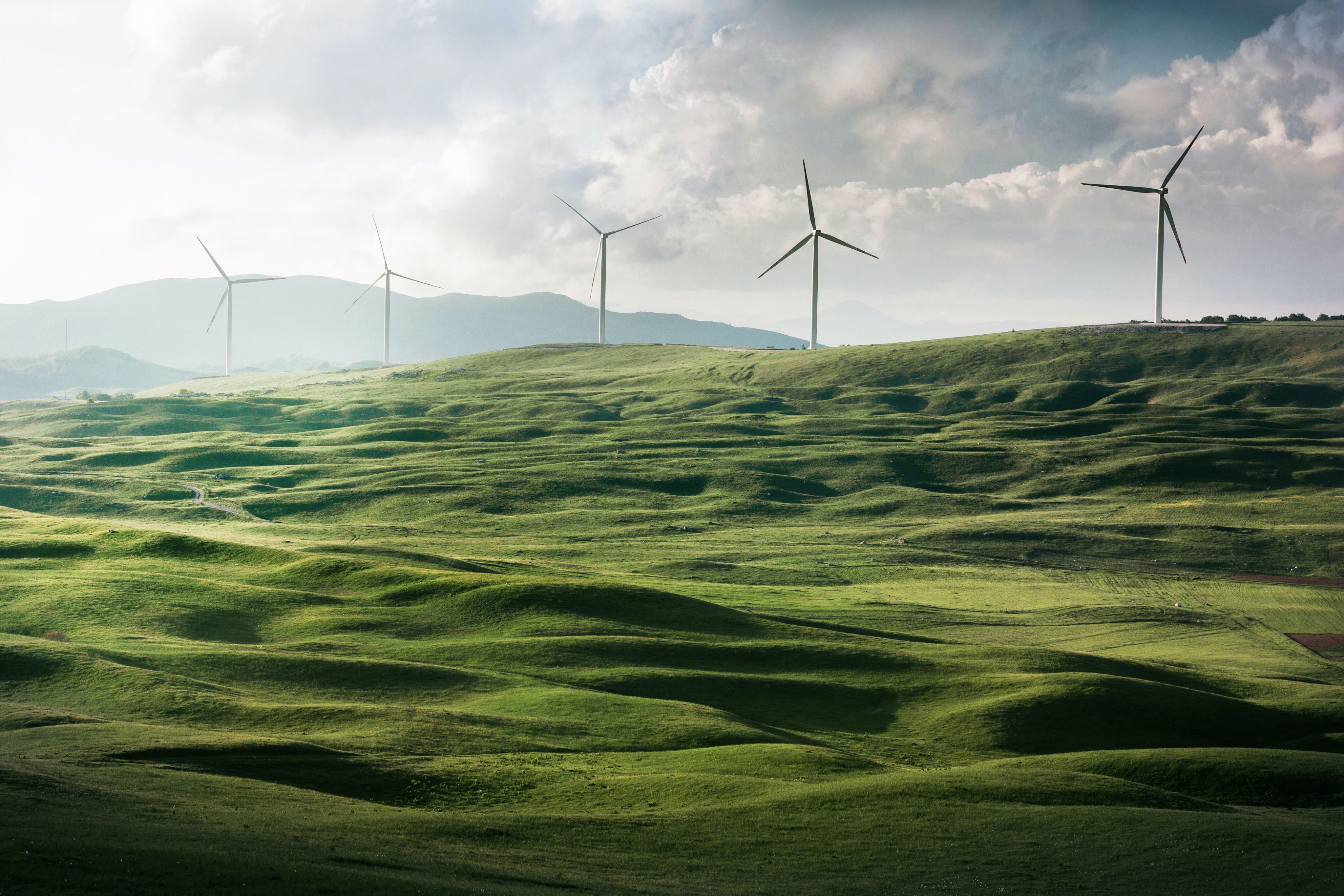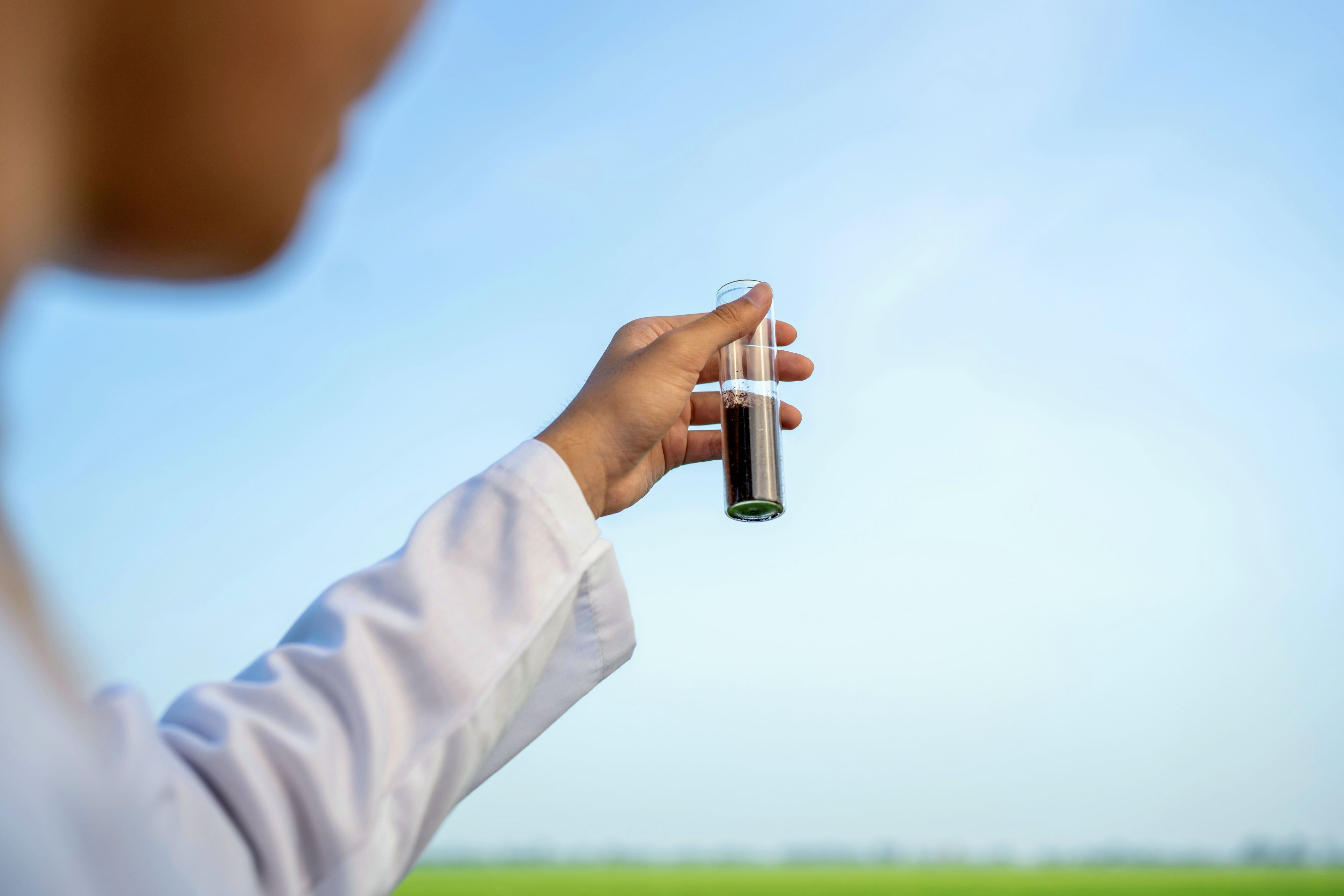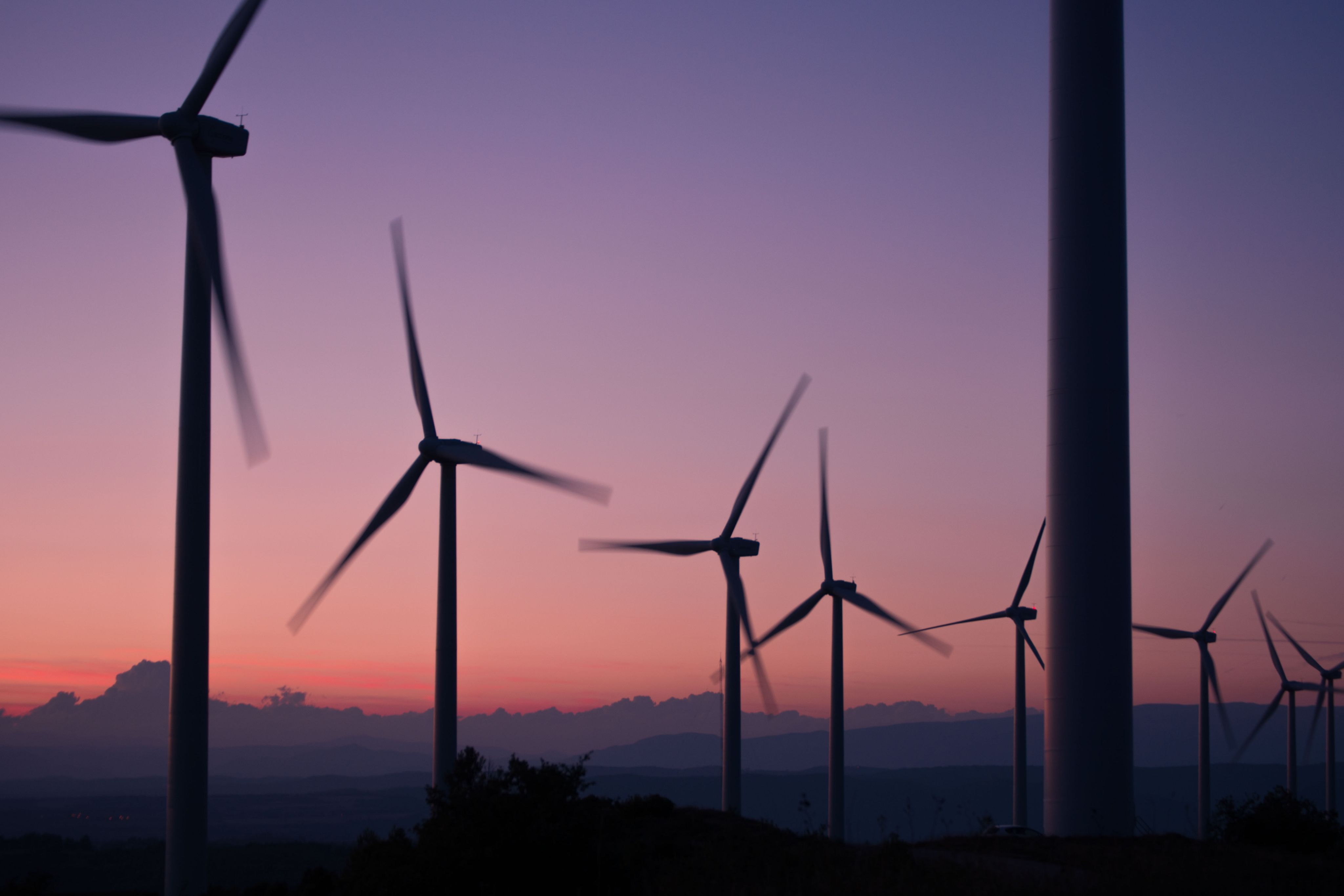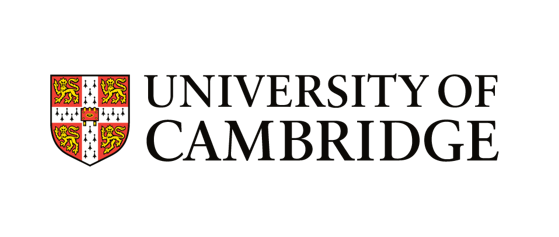Air into fuel with power
of wind
New process designed to turn CO2 from
air into fuel using renewable wind energy

A study by researchers at the University of Cambridge has revealed a potential way to apply renewable power to clean the Earth’s atmosphere, while also producing useful everyday products.
The work – undertaken by George Fulham and Paula Mendoza-Moreno, PhD students in the Energy Reactions and Carriers group led by Dr Ewa Marek at the Department of Chemical Engineering and Biotechnology (CEB) – investigates a method to capture carbon from the air and transform it into methanol, a renewable fuel, useful solvent and important feedstock for manufacturing other chemicals.
The Breakthrough

A practical and sustainable solution
The breakthrough in carbon capture and utilisation (CCU) offers a practical and sustainable solution for the future of chemical and fuel production, combining cutting-edge technology with the implementation of low-carbon renewable electricity such as wind power. The potential environmental benefits are substantial in reducing the world’s dependence on fossil fuels.
"Methanol is currently made mostly from fossil fuels, typically natural gas. Our work looks at how we can transition the production away from a reliance on polluting feedstocks while also facilitating the removal of atmospheric CO2."
Known as the power-to-methanol (PtM) process, it begins with direct air capture (DAC), which extracts carbon dioxide directly from the atmosphere, reducing greenhouse gases and helping to combat climate change. To produce methanol (CH3OH), the captured carbon (CO2) is then combined with hydrogen (H2), which is produced by splitting water into hydrogen (H2) and oxygen (O2) using renewable electricity from wind turbines.
George said: “Methanol is a platform chemical with many pre-existing uses for manufacturing building materials, as well as emerging uses as a shipping fuel or a precursor to producing aviation fuel. However, methanol is currently made mostly from fossil fuels, typically natural gas. Our work looks at how we can transition the production away from a reliance on polluting feedstocks while also facilitating the removal of atmospheric CO2.
“The PtM process relies very heavily on electrical power, which must be renewable for the process to deliver environmental benefits. However, the key challenge posed by renewable sources, such as wind, is their variation over time: the wind is not going to blow the same every day, and so the power will fluctuate. Several large-scale PtM projects are already underway, but the challenge of renewable power variation has not been fully investigated before now.
“Our work found ways to solve the problem by using real-world wind data to model how we can dynamically produce methanol according to the daily wind power generation, optimising both the economic and environmental performance of the process.”
George Fulham observes lab work with colleague
George Fulham observes lab work with colleague
George works in the lab on an experiment
George works in the lab on an experiment
George and colleague analyse the data
George and colleague analyse the data
Fine tuning

White windmill near grass
White windmill near grass
Green grass field under white clouds and blue sky during daytime
Green grass field under white clouds and blue sky during daytime
White windmill during day
White windmill during day
Scalable, cost-efficient and sustainable
The study showed how the production of methanol can be adjusted to match the available power from a wind farm, with batteries and reserve storage of compressed hydrogen and carbon dioxide then integrated to allow continued production during periods of very low wind.
Economic analysis also revealed that with optimally located wind farms and advancements in DAC, electrolysis, and catalytic processes, the cost of methanol could plummet to as low as £240 per tonne, rivalling the cost of methanol derived from fossil fuels.
The researchers also evaluated the environmental impact, with Dr Marek highlighting the importance of assessing the sustainability and, therefore, the viability of the research.
She said: “We included a life-cycle assessment to clearly demonstrate that the source of electricity is crucial in the power-to-methanol process. If the electricity comes from the national grid, then PtM doesn't reduce CO2 emissions; it actually increases them.
"We included a life-cycle assessment to clearly demonstrate that the source of electricity is crucial in the Power-to-Methanol (PtM) process. If the electricity comes from the National Grid, then PtM doesn't reduce emissions, it increases them."
She added: “Sourcing electricity from the grid is a common assumption in earlier studies, but we demonstrate that this assumption leads to hidden CO2 emissions, making it an oversimplification when talking about sustainability in the chemical industry. Therefore, renewable energy is vital to the PtM process being sustainable.”
News from CEB
Research selected for prestigious journal cover
Dr Francesca van Tartwijk's research into the causes and symptoms of ALS features on the cover of the Journal of Neuroscience.
Dr Alexander Borodavka named 2024 Lister Fellow
Dr Borodavka and his research group have received a six-figure funding boost from the Lister Institute to continue research that could save millions of children's lives in the future.
Record number of professors promoted in department
Six academic staff promoted at once at CEB for first-ever time, demonstrating strength of teaching and research expertise in the department.










